It is frustrating that the Association is not working in the interests of the players but is focused only on benefit to the Association itself.
– Oh Dong Hyun, lawyer for Ko/Shin
The Donga Ilbo reported today that an injunction had been filed on behalf of 2014 BWF World Champions Ko Sung Hyun and Shin Baek Cheol (pictured), asking the courts to intervene to prevent the Badminton Korea Association (BKA) from repeatedly blocking the players’ attempts to enter international badminton events. Most recently, according to the Korean daily, Ko and Shin indicated their wish to enter the Indonesia Masters 2018, a US$350,000 event that will be held in Jakarta from January 23-28.
The pair were told that they were no eligible to enter the event since a) they had ‘retired’ from the Korean national badminton team; and b) neither player has turned 31 years of age. The same reasons were cited last winter, when the players attempted to enter the 2017 All England, an event that Ko was required by Badminton World Federation (BWF) rules to participate in. The BWF rules also state, of course, that players are not allowed to enter international ranking events directly but rather that they must ask their own national associations to do it for them, which for players in Ko and Shin’s situation, the BKA refuses to do.
The Donga article confirmed that the BKA actually billed Ko the US$5,000 to cover the BWF fine for top ten players missing Superseries Premier events, such as the All England. The BKA apparently asked Ko to send official retirement documentation to the BWF in order to avoid the fine but Ko refused because he was still intent on playing. Ko was apparently able to avoid at least one fine by showing up at the Indonesia Open Superseries Premier and participating in a press conference there, something the BWF requires in the event that a player does not enter and actually play on court.
Ko/Shin’s lawyer Oh Dong Hyun of Yeji Law Firm in Seoul, called the BKA rules “arbitrary”. Indeed, it is unclear where the age 31 comes into it. In the case of female players who have left the national team, the BKA will apparently agree to process their tournament entries as long as they are over 29. Nor do the complexities stop there. Frequently, pro teams send non-national team players to overseas tournaments with the national body’s blessing, as at this year’s Mongolia International Series, where players from Seongnam, Gimcheon, and Goyang all played independently of the national team. Finally, some BWF ranking events within Korea appear to be exempt, and this allowed under-31, non-national team players Ko Sung Hyun, Lee Yong Dae, and Kim Gi Jung to participate in the recent Korea Masters Grand Prix Gold.
While Ko and Shin’s legal action seems to be evidence of players becoming more assertive, it cannot be said that the general trend is toward more independence. In fact, in the case of Malaysia, independent players have for years been participating in the biggest badminton events but the Badminton Association of Malaysia (BAM) announced in late September that it was going to prevent non-national team members from playing in Grand Prix Gold events and above. BAM president Seri Norza Zakaria was even quoted in The Star as pointing to Korea, China and Japan as precedents for BAM’s decree.
Korea’s men’s doubles fortunes have taken a serious hit with the post-Rio retirements. Shin Baek Cheol left the national team before the Olympics and officially registered his retirement with the BWF in October last year, not long after Lee Yong Dae and Kim Sa Rang had taken the same steps. Ko Sung Hyun left the national team in January 2017 and Yoo Yeon Seong and Kim Gi Jung made the same move in May but none of those three submitted retirement documentation to the BWF and only Ko Sung Hyun was in the top ten and thus liable for BWF fines. Ko finally dropped out of the top ten in August of this year. Yoo Yeon Seong is the only one of the six who is now ove 31 and Ko turns 31 in May. Kim Gi Jung will be the last one, turning 31 in August 2021.
For only the second time in history, Korea had no men’s doubles pairs qualified for the Superseries Finals. The team went from 8 Superseries, 2 Grand Prix Golds and the Asian title in 2015, to the present state, where in 2017, they have managed only the Universiade men’s doubles gold and the Korea Masters title.
Click here to access the Donga Ilbo article (in Korean)
![Former World Champions file for injunction against Badminton Korea Association It is frustrating that the Association is not working in the interests of the players but is focused only on benefit to the Association itself. – Oh Dong Hyun, lawyer […]](http://www.badzine.net/wp-content/uploads/ngg_featured/Ko-Sung-Hyun-and-Shin-Baek-Cheol-at-NSF2017.jpg)
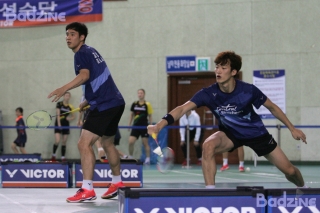

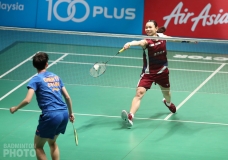
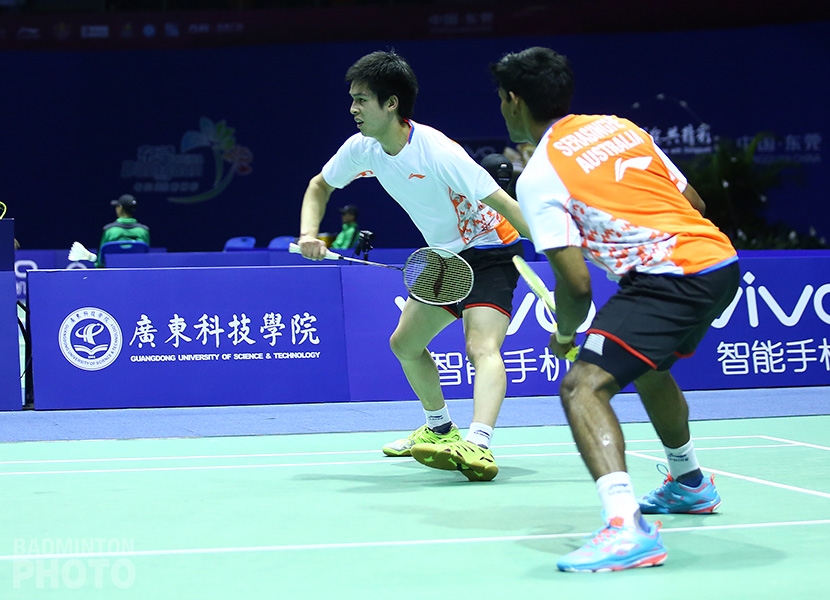
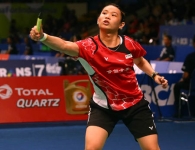
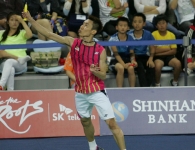
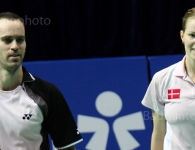
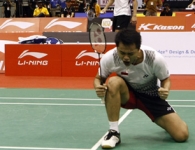
Leave a Reply